
Tech Diva Biz Talks
Ready to mix business with brains, tech, and just the right amount of side-eye? Then welcome to Tech Diva Biz Talks (formerly the Business Chop), the podcast where strategy slays, tech behaves (mostly), and your host, Audrey “Tech Diva” Wiggins, says what everyone else is thinking about marketing and entrepreneurship.
We’re spilling the tea on business blunders, brand glow-ups, digital do-overs, and how to stop ghosting your website. Interviews? Sometimes. Sass? Always. Tech working better for your business? That’s the goal.
Subscribe now to catch every episode and exclusive content.
Want to be a guest on Tech Diva Biz Talks? Send Audrey Wiggins a message on PodMatch, here: https://www.podmatch.com/hostdetailpreview/audreywiggins
#LetsTalkTech #Entrepreneurship #PublishedAndPaid #Authorpreneur #Storytelling #EntrepreneurLife #MarketingMoves #SuccessBlueprint #StartupHacks #KeepItLegal #ScaleYourBusiness #TechForBiz #SmartMoney #BrandingBoss #Innovation #HustleSmart #Mindset #DigitalMarketing #ExitStrategies #SuccessionPlanning #VisualStorytelling #TeamWork
The Tech Diva Biz Talks podcast is a production of Altogether Marketing LLC founded by Audrey Wiggins, Chief Brand Strategist aka Tech Diva. Visit https://altogether.biz for more information.
Tech Diva Biz Talks
Breaking Free from Smart Goals Why Stupid Goals Work Better with Coach Ken Williams
In the world of goal-setting, conventional wisdom often falls short. Enter Ken Williams, a life coach and author who's challenging the status quo with his innovative "STUPID Goals" framework. This episode of Business Chop dives deep into Ken's unconventional approach to achieving success and finding fulfillment in both personal and professional realms.
Rethinking Smart Goals: The STUPID Approach. Ken shares his journey from frustration with traditional SMART goals to developing a system that truly resonates with his experience:
- Stretch
- Tangible
- Unshakable
- Possible
- Inspiring
- Development-focused
Learn how this framework addresses common pitfalls of goal-setting and why focusing on personal growth rather than just end results can lead to greater success and satisfaction.
Overcoming Fear and Taking Action. Ken offers valuable insights on:
- Acknowledging fear without letting it control your decisions
- The importance of taking small, consistent steps towards your goals
- Building self-trust through daily commitments and follow-through
Balancing Multiple Responsibilities
As a father of five, author, podcaster, and coach, Ken shares his strategies for maintaining balance:
- Using daily streaks to build positive habits
- The power of a well-managed to-do list
- Honoring commitments to yourself as the foundation for success
Key Takeaways for Career Growth
- Why mid-career professionals often feel stuck and how to move forward
- The value of aligning your goals with your personal values and desires
- Practical tips for networking and professional development
Whether you're struggling with traditional goal-setting methods or looking to reinvigorate your career, Ken's approach offers a fresh perspective on achieving y
Buzzsprout - Let's get your podcast launched!Start for FREE
Designrr for eBooks, Blogs
Create eBooks, Blogs, Lead Magnets and more!
Riverside.fm Your Own Virtual Studio
Professional Virtual Studio
Altogether Domains, Hosting and More
Bringing your business online - domain names, web design, branded email, security, hosting and more.
Digital Business Cards
Let's speed up your follow up. Get a digital business card.
Small Business Legal Services
Your Small Business Legal Plan can help with any business legal matter.
Mens and Womens Hats
Since 1972, American Hat Makers has been dedicated to the art of fine hat making.
Disclaimer: This post contains affiliate links. If you make a purchase, I may receive a commission at no extra cost to you.
Want to be a guest on Tech Diva Biz Talks? Send Audrey Wiggins a message on PodMatch, here: podmatch.com/hostdetailpreview/audreywiggins
To work with Audrey schedule a breakthrough/discovery session.
[00:00:00 - 00:01:51]
Welcome to the business Chop where challenges, success, rewards and solutions to entrepreneurship collide. Let's chop it up. Hello, chop squad. Our guest today is a life coach, a chocolate cake baker and a candlestick maker. No, no. Just kidding, just kidding. I. I couldn't resist that. Ken. So seriously folks. Ken is the is a father of five kids. His career took on a meandering route through call centers, sales organizations and industrial environments until he found the love of helping people maximize their lives through coaching. He has written several books including 21 Days to Success Through Networking and most recently, Stupid Gold's Blueprint, the Antidote to Toxic Smart Goals. His name is Ken Williams. So we're going to hear more on the other side of this message from All Together Marketing. Knock out your competition with All Together Market to elevate your brand. Take a stance with your business name, logo, the tagline, your colors, even the fonts for your business. And then jab left with your website. Jab right with core values, Back up with product experience and bring it on with you. Visit AllTogether Biz and let us help you create a knockout brand. Welcome back everyone. We're going to continue on and learning more about Ken Williams. He hosts the Unstuck Career podcast where he discusses ways to take the next steps towards the life you want. And he specializes in helping mid career men who are at a career dead end. And he has discovered that stupid goals holds the secret to success. Welcome Ken to the Business child.
[00:01:51 - 00:01:54]
It is so great. I'm so glad. I'm grateful to be here.
[00:01:55 - 00:02:04]
All right, me too. Glad to see you. And so before we get into some serious stuff, name one or two personal fun facts you know what you would like to share with us.
[00:02:04 - 00:02:42]
So personal fun fact for me is number one, you mentioned chocolate cake baker. I have made over 9,000 chocolate cakes in the last probably 15 years and I do it almost every week. Just make them give them away. Have fun with it. So that's one fun fact. Another one is I want was in the audience on the Price is Right when my brother was a contestant on the Price is Right and he blames me for losing the showcase. He didn't pay attention to anything I said until the showcase and he used the number that I told him and that was too high. So.
[00:02:42 - 00:02:47]
Oh man. Sorry brother. Better luck next time.
[00:02:47 - 00:02:48]
Yeah, he deserves it.
[00:02:50 - 00:02:53]
That was fun though. Don't to actually be there. That was cool.
[00:02:53 - 00:02:54]
That was a lot of fun.
[00:02:54 - 00:03:22]
Yeah. I was on let's Make a Deal. So covet. Yeah, they were doing the virtual One. So that was fun. All right, so let's get into some, some things. Just right off the riff, I'm gonna just go right into the stupid goals and coaching philosophy. Oh gosh. So what inspired you to develop the scoop? Look, I can't understand. I'm talking stupid. Right, the stupid goals framework. And how does it differ from the traditional smart goals?
[00:03:22 - 00:04:50]
I learned smart goals as I was growing up. And specific, measurable, attainable, realistic, irrelevant and time bound. I could not get it to work for me. I couldn't figure out what was wrong. My dad preached, set a goal, Set a goal, write it down, all the things, make sure it's specific. And so I remember the time that I lost my job. And so I set my smart goal specific. I need a job. I need it. By this date I had all the things and nothing happened. Nothing happened. And I, and I thought that that meant there was some, something wrong with me. See, you didn't get the job. There's something wrong with you. You failed at this other smart goal. There's something wrong with you. And so adding up all these failures, I took a hit on my self esteem. What's wrong with me? Am I a failure? And I realized, and it took a long time of trial and error, I realized I'm approaching goals the wrong way. First of all, smart goals, when they were created in the 1980s, it was not a personal goal setting system, it was an organizational goal setting system. The A in smart is not achievable. The original was assignable. So Audrey, we're in an organization, we're going to increase sales by 16% and you're part of that. I'm going to assign to you. You've got to get three more sales per month. That's going to how you're going to, how you're going to contribute. And so trying to. And for some people smart goals work great. They just didn't work for me.
[00:04:50 - 00:04:53]
I like that assigned. Well that, that makes a lot of sense.
[00:04:53 - 00:07:19]
So I realized through a lot of trial and error that the things that I was going after, the things that I was relentlessly chasing were not achievements, but all of my goals were achievements. I was setting achievement goals. And the things that really lit me up were experiences. So quick example, I was talking to my family one time, I just done a quick weekend trip, as you often might do to Europe. And so I got back showing pictures and stuff like that. My 11 year old son said, so dad, when are you going to take me? I'm not going to take you. Why Would I take you to Europe? You don't even have a passport. And he said, well, how do I get a passport? Well, you got to go to the post office and get an appointment. It's going to cost whatever, dollars. And he said, so can I get a passport? So we get him a passport and we ended up taking a trip, two week trip to Europe. But part of that was I gave him the responsibility to decide where we're going to go. Europe is a big place, there are a lot of things to do and see. And so he chose we're going to Paris because I want to see the catacombs, I want to go to the Louvre and then let's go to Italy because I want to go to the Coliseum and I want to see Pompeii and Mount Vesuvius. And then I lived in Portugal many years ago, and so we were going to kind of top things off with Portugal. But he did a good part of the planning. It wasn't going to Europe that was exciting to me. It was the experience that I had with my son and deepening that relationship. And as soon as I realized, oh, I'm not an achievement goal person, I'm an experience goal person, wow, it changed. Finally at age a lot of years, I'm in my 50s, I, I had never been excited about a goal before. And I texted my brother, the one who didn't do well on the prices. Right. But I texted him and I said, I have never been this excited about a goal. And so I started analyzing, I started reverse engineering what worked with these things that I was accomplishing and chasing relentlessly that didn't work with the smart goals. And that's where I came up with this stupid goal framework. I had a coach one time who said, you can't just stand for something, you have to stand against something. And I thought, I'm going to stand against smart goals because they're toxic. They didn't make me better in any way. They only made me feel worse about myself and my comparison. Here's what I did with my smart goal and here's what somebody else did with their smart goal. There's something wrong with me. False. We're just using the wrong framework in the way that we set goals.
[00:07:19 - 00:07:23]
Okay, so then can you break down each component then of stupid goals?
[00:07:23 - 00:11:26]
Yeah. So I've taken the things about smart goals that didn't work for me and I put them into STUPID as an acronym. So first of all, a goal has to be a stretch if you're wanting to lose a A pound, that's not much of a stretch. So let's make it substantial. Let's make it something that's a little bit maybe scary. So that's number one. It's gotta be something that's gonna make you a better person. P is tangible. We wanna be able to really describe the result that we're gonna get. Whether that's a visual image, maybe it's kind of thinking through what's the experience gonna be, or whatever it is. There are four different things that people get motivated by, but we're going to make those things tangible. If you do a vision board, for example, that's one way that you can make your goals tangible. Let's make it as specific as possible so you know when you achieve it, you is unshakable. This is something that smart doesn't talk about unshakable. And it's not that the goal itself is unshakable. I'm unshakable. I am not going to give up on this goal, which is one of the reasons that it has to be. We'll get to I inspiring, but it has to be inspiring. It has to be exciting for you. So, so many of the goals that you've probably set have been somebody else's goals. Your doctor comes and says, oh, you probably should reduce your cholesterol intake, your fatty triglycerides or whatever. And so then you have this goal from your doctor, I'm going to improve my health markers. But that's not your goal. That's your doctor's goal. If you're not motivated, if you're not excited, if you're not interested, which is why the gyms on January 2nd are full and by January 31st they're not, because it wasn't their goal in the first place. So that's unshakable. You are so committed to it, you're not going to give up on it until you get to it. He is possible. For example, sometimes I'll ask on social media, what is something that you would want? I want a billion dollars. Actually, I had one. One person who said, I want someone to give me a billion dollars. Okay, no, you don't. That's not likely. What billionaire is going to come up and say, audrey, you don't have any reason, or, I don't have any reason for this, but I'm going to give you a billion dollars. Just. I wouldn't put that in the realm of a possible goal. Right. So running a four is possible. Finishing a marathon is possible. Writing a book is possible. If somebody's done it, it's possible. And we could talk about impossible goals. There are reasons for that that we might explore at some point. But in general, we want a goal that we know. We have evidence somebody somewhere has achieved it, because then we know. If Audrey's created a podcast, maybe I can create a podcast too. And so somebody somewhere is at least going to be available as a resource. I mentioned is inspiring. It has to light you up. It has to be. And so many times in our lives, we lose sight of what lights us up. We live for our parents. Parents tell us what we want and don't want. Teachers, bosses, partners, friends. And we forget to honor the things that we want. So we need a goal that's inspiring to us. And then D is one of the biggest shifts. Smart goals tells you that the goal is the result. Stupid goals tells you that development is the result. I don't care whether you finish the marathon. It's who you become in the process of preparing for the marathon. Because if you use the marathon as an example, your starting line is narrow, a couple feet, maybe, on the market, on the ground, then you've got 26.2 miles of becoming. And the end result crossing that finish line, if that's what you want. So many times I hear people, when they achieve something, they realize that's it. That's all there is to it. That's. It doesn't excite them like they thought it was going to. They're chasing this imagined feeling. And so we're not focusing on the feeling that you think you're going to get when you become the pilot or when you become the book author or you become the marathoner. We're really leaning in to who are you becoming in the process of accomplishing whatever the target is that you declare as your goal.
[00:11:26 - 00:11:31]
So can we equate that then to enjoying the journey then, and not the destination?
[00:11:32 - 00:11:32]
Right.
[00:11:32 - 00:11:32]
Okay.
[00:11:32 - 00:12:05]
Well, the journey, if a marathon, again, it's 26.2 miles, is the journey. Destination is one step. And if you're looking for that step, we'll just shortcut, go to that step, get a picture, photo finish you on the. On the platform or crossing there. Photoshop a metal you. That's the experience of finishing. But that feels hollow because you haven't done the. The. The journey itself. The journey is hard, it is uncomfortable, it is boring. And that's why we're going to celebrate it.
[00:12:05 - 00:12:15]
So you mentioned that traditional goals often fail. And what common pitfalls do you see with smart goals? And how does your Approach with stupid goals, address those.
[00:12:15 - 00:13:44]
A lot of times we think of smart goals as an all or nothing. So I'm going to lose £20 by the end of the year and if I'm at 19.5 pounds up, I failed, I'm going to qualify for the Boston Marathon. And if you miss your qualifying time by a second, you failed. And so the smart goal is, seems to be focused more on. It's a binary yes or no, you achieved it, you failed. And enough of those you failed starts to feel like you're a failure as opposed to you're a success. So instead, what if we focus on the person that I am today is better because I started my business a year and a half ago in a lot of different ways. The person that I am today is better because of the focus that I've put on my health, for example. And so I'm not looking at a temporary setback. If you miss the qualifying time by a second, that just means next time with the continued training, I'm almost guaranteed to hit it. And so celebrate the successes. So many times if we're climbing a mountain, we look at the, think about climbing Everest, you see the, the peak and it's a multiple day journey. The whole process is very long, but you keep looking to the peak and you realize that this, that's just so far away. But turn around and look back, look where you've been. Yes. And sometimes it's important to just look back and realize I have killed it, I have knocked it out of the park. I've done some amazing things. Celebrate that. And that might even be the boost that you need to make your summit attempt.
[00:13:44 - 00:14:05]
Yes, absolutely. I had my swim lesson last night and kind of the same thing in the, the instructor was like, look how far you come. And I look back and I had swam, it was two thirds of, of the pool, like, oh my God, I can't believe it. You know that I gave energy and encouragement to make that last leg, so to speak. Right, Journey. Yes.
[00:14:05 - 00:15:34]
You know, we, when you think of a goal as a all or nothing thing, one of the things that I used to do with my smart goals was I'm going to work out every day. And then day two would hit that. I'm sore from yesterday because I'm doing something new or maybe I'm sick or maybe I'm traveling and I don't have a chance to go to the gym. And all of a sudden, well, this year is ruined. I guess I'll wait till next year to start my. No, no, so you can build in. There are two things that make it really easy. Number one, take a small step every day towards your goal. Maybe it's I have one of my small steps that I do every day is one pushup. Now almost every day I do, almost every day I do more than one push up. But it's a small step that's moving me towards my health goal. It doesn't have to be a big thing. And then build failure in that five out of seven days I'm going to walk 10,000 steps or over the course of the week I'm going to walk 70,000 steps. And so if Monday is a bad day, I can make up for it on Tuesday. If I'm feeling great on Wednesday, I can exceed so that I'm setting myself up for successful end of the week. So if we think about the goal as a, as a process instead of an event, then we're much better. We set ourselves up better for success than well, I failed. I didn't get that sale. I guess I'm not going to hit my target for the month or whatever. It's just, it's a process. And look back, what did you learn? What did you, what did you grow? How are you better today than you are then? And give yourself some credit for the good things that you've done.
[00:15:34 - 00:15:46]
Yes, absolutely. So then how does the stupid goals framework help? Mid career professionals mentioned that you work with men mere career who feel stuck or at a dead end in their careers.
[00:15:46 - 00:16:03]
We start with what do you want? And like I was saying, a lot of times we have not paid attention to what we want. I was working with a client and I said what do you want? He, he's so mad at his employer and he's ready. I'm waiting for the last straw so that I can walk out.
[00:16:03 - 00:16:07]
He gets responsibility and not his right. It'll be the boss's fault.
[00:16:07 - 00:17:33]
Sure, it's the boss. And, and there's some reasons that he feels the way that he does. When I asked him what he, he doesn't know what he wants. He has kind of this framework and so I've given him some exercises on how do you find, how do you find the, the passion? He was telling me about a content creator that he follows that has a passion for KitchenAid mixers. So my client is asking, do you just have this natural inclination for KitchenAid mixers or does something happen that you decide? That's my thing. I'm excited about KitchenAid mixers. Well, I'll tell you, I think it's maybe a little bit of both. You find something that you're naturally good at, something that you have an aptitude for. And so one of my passions, as you know, is stupid goals. And it's because I found some success with them. I found how it worked for me and hasn't worked for other. At least the smart goals haven't worked for other people. And I feel like I've got a message that can help people have a better life. And so step one is if you don't know what you want, then figure that out. As soon as you know what you want, then start taking steps, small steps, big steps, doesn't matter. But start taking steps towards that thing that you want. And, and that's going to put you on the path towards your goal even before you formally establish something as a goal by writing it down and putting it on your vision board or whatever process you use.
[00:17:33 - 00:17:42]
Moving on to books and writing then your book 21 days to success through Networking uses fictional character. Is it Nick Roton or Gnick Roton.
[00:17:42 - 00:17:58]
And so this was my, my co author, Ron had written a book called Networking your way to Success. He had this character kind of, it was a caricature, kind of like a carnival barker type person. And he called that character Nick Roten, which is networking spelled backwards. Oh.
[00:17:58 - 00:17:59]
Oh, gosh. Okay.
[00:17:59 - 00:18:01]
So that's why the, the odd name.
[00:18:02 - 00:18:13]
Yeah. Okay, that's pretty cool. So you use that to convey networking principles. What was the rationale behind this, this narrative? It resonated with readers.
[00:18:13 - 00:20:06]
One of my favorite stories. So first of all, I wrote the book as an introvert approaching networking. Ron, the co author, based on his previous book, Extrovert, that's just in his blood. He loves meeting people. So I wrote it from that perspective and it's a story instead of a lecture. And I liked that approach because I can read somebody's story or listen to somebody's story. And this is why social media is so popular. We hear people's stories and we think, ah, that's something that I can do or something that'll work for me or something that I should avoid. So I, I was, I was sitting in church and there's a, a young man sitting next to me, somebody I knew not well, but he had fallen some hard times. He was homeless, separated from his wife and I think daughter. And I just had the thought, give him a copy of your book. And so I said, I don't know if this will be helpful, but here's a book that I think might give you something that you can work with. And he took it. And a few weeks later he sent me a message and he said, that book changed my life. Oh, wow, that lights me up. So I said, tell me what's. So he was working at a healthcare institution, hospital or something like that, and they were doing like a 5K event. And he happens to be near the CEO and he used some of the principles. One of the principles is serve. Just to serve, not because you want to get something out of the interaction. And so he has this positive interaction. Actually, I think he was. He was a server at, in the, in the cafeteria in the facility. But. And so he had had some interactions with the CEO, ends up next to him at this 5K thing. And this guy, this kid had such a great attitud good conversation with the CEO who then asked him, what's your. What's your story? What's your plan? And this kid says, I want to. And he kind of explains what his vision was. And he said, and this is all based. He attributes this to the things that he learned in the book. He tells the CEO, this is what I'm looking for. CEO says, I'll put in a good word for you. Apply for any job that you're qualified for at the company. Put me down as a reference.
[00:20:06 - 00:20:07]
Wow.
[00:20:07 - 00:20:13]
And so now he's. He's in a supervisory position. He's changed his life. Being a part of that is just so rewarding.
[00:20:14 - 00:20:34]
Yes. That's awesome. So when you're in the other book, then in Stupid Goals Blueprint, the Antidote to Toxic Smart Goals, you challenge conventional goal setting wisdom. We talked about what feedback have you received from readers from that you know, from that have. Who have implemented your framework similar to the gentleman you just mentioned with the other book.
[00:20:34 - 00:21:23]
One of the things that is, it's so fun for me to. To run into people who hate goal setting as much as I did. And I was talking to a kid last week at his wedding reception. He told me the same thing. I hate I smart goals. And so having somebody like that who can then reframe goal setting and realize the important thing about the reframe is not just that you reframe goals, it's that you can realize that I really can achieve anything I want. That realization is so exciting to me because there's so many of us that are living below our potential. And the biggest problem, if you want to call it that, is we're just not speaking our goal setting language. As soon as we start speaking our goal setting language, then it becomes Very easy to set goals, to find goals that we want to set, goals that we get excited about, and then to go after those relentlessly until we achieve them.
[00:21:23 - 00:21:38]
So moving on to podcasting and audience engagement. On your podcast, the Unstuck Career, you discuss strategies for career advancement. What reoccurring themes or challenges do you observe among your listeners, and how do you address them?
[00:21:38 - 00:23:30]
One of the most common themes that I see is people have the fear to take a step. And so we talk about that, that a lot. And the spoiler alert, there's. There's not a way to overcome the fear. There's not a way to eliminate the fear. The strategy, though, is you give your fear a voice, but you just kick it out of the driver's seat. Yeah, I hear you. The fear is there to protect you. The fear is there because, well, what if you look foolish? I understand I might look foolish by posting this social media post or by writing this book or whatever. And I'm okay. I'm. I. I will survive. I'll be okay if I look foolish. I'll be okay if somebody criticizes me. I'll be okay if my haircut is really bad. I'll be okay if I go out and my shirt and pants don't match, which. These are all things that have hung me up in the past. And so acknowledge the fear. Don't try to suppress it. Think about it like a beach ball. If you've been in the water with a beach ball, and if you try to push it below the surface of the water, you can do it, but at some point it's going to pop back up. If you just let it just kind of rest there, it has almost no impact. Yeah, I see you there. I'm just not going to pay attention to you. I'm not going to follow your advice. And the chattering doesn't stop, but it becomes less noticeable. Plus, if you feed the fear, it's going to grow. And every single time, 100% of the times that I have seen this massive fear in front of me and I've actually taken a step into it, I realize it's smoke and mirrors. It is so thin that all of a sudden, on the other side, I realized that's I was afraid of that and things that could be horrifically embarrassing. For example, that was it. That, that wasn't that bad. So that is one of the things that comes up all the time. How do I deal with the fear? And so in my content, my podcast, my social media posts, a lot of times I deal with that. And it's just a reminder. You got to take a step.
[00:23:30 - 00:23:47]
Yeah, yeah, absolutely. So then how do you. Because other people have podcasts, so this might be a good question to answer is like, well, how do you incorporate your listener feedback into your podcast content? And can you share an example where audience input significantly influenced an episode?
[00:23:47 - 00:26:23]
Well, one of the things that I used to do, I post twice a week and I used to do a solo episode on Mondays. This was my way of kind of kicking off the week. Let me teach you how to deal with difficult people. Let me teach you how to overcome fear. Let me tell you how to set a goal. And that would be about 15 to 20 minutes. And then Friday I would do. I called it Friday Fun. Fun. Friday Fun. I would come up with a random question. I used to have a podcast idea, deck of cards. And I just pull a card and I would speak to that, what is one of your guilty pleasures? And I would talk about that. And then I had a coach who said, what if you tied those Friday Fun episodes back to the work that you do? And that got to be kind of a fun challenge. So how do you turn a guilty pleasure into getting unstuck? So I had fun with that. But then I started being approached by people who wanted to be guests on my podcast. I thought, well, I don't have time. I, I shifted my format. So Mondays have been guest episodes where we talk about. Usually it's the expertise of somebody else. The, the episode that came out, there's one that came out recently where somebody talked about their leaning into their intuition. Such a really interesting concept because we have intuitive thoughts that a lot of times we ignore. And so we talk about that in the framework of how do you use that to get unstuck? I was still doing the Friday Fun and I thought this. Well, this isn't really aligned with where I want to go. And I was getting more and more requests. I was two, three months out on my recorded interview podcast. I thought, what if I change my Friday kick off the weekend in a fun way to. It's still a short episode, but let's kick off the weekend with a, a solid point that's going to really uplevel your life. And so I called it the. The Friday focus. So Friday focus might be something like, it's the same kind of content I had been doing, but it's just me. Let's talk about how to overcome fear. And it would be a 5ish minute episode. Just one tactic. Here's something that you can do and have a great weekend. We'll be back Monday with an interview. And so I'm interested in seeing how that's going to play out. I booked out about a month right now, and I have more people who are reaching out saying, I want to be on the podcast. And I've got people that I'm reaching out to. Hey, I want you on a list on the podcast. So we'll see how it all goes. But. And that's one of the reasons that I'm doing two episodes a week. They're fairly short and gives people kind of a steady drip of positivity. And let's find actual tactics that you can implement there that are going to improve the quality of your life. Moving past that fear into the life that you always thought you deserved.
[00:26:23 - 00:26:43]
That's amazing. I love that. Balancing a career, authorship, podcasting, being a father of five is impressive enough. What strategies do you employ to maintain this balance, Ken? And what advice? Because I always like to ask advice from my guests. Do you offer others? Juggling multiple responsibilities to be able to rely on yourself?
[00:26:44 - 00:30:01]
That is the most important relationship that you're going to have is the relationship with yourself. And what I found with myself is that that was the relationship I was neglecting. I was not telling myself the truth. What I mean by that is I would say something like, I really want to get in shape. Which was not true. I wanted the result, but I didn't want the effort. And so I started telling myself the truth. I would say things like, I'll get to that tomorrow. My wife would ask me to do something. Hey, could you drop off this package? Yeah, I'll take. I'll take care of it tomorrow. And then I wouldn't do it. And sometimes I would say, yeah, I'll take care of it later. And I had zero intention. I wasn't trying to be deceitful. I just. It wasn't a priority. So the. The two techniques that I use that have been phenomenal in me recreating and solidifying that relationship with myself is number one. I have my daily streaks that. Like Duolingo, for example. There are a lot of apps that will tell you how many days in a row that you work towards your goal. And that's all this is. So I have my push up, my daily walk, my. I want to do one thing at least every day to nurture my network. I want to do one thing every day to send a kind message to somebody, whether that's a. A handwritten note, a text message, email. But the things that I want to incorporate in my life. I have a daily streak for each of those that I keep track of. So that's one thing. The second thing is I have a to do list. And if I put it on the to do list for that day, it gets done. And that's the commitment that I've had to have for myself. So when it's 11 o' clock at night and I'm exhausted, but I still have one thing that I need to get done. I'm going to get it done because I told myself I'm going to get it done. But what that means also is I did something really hard today. I did something really hard today, and I realized that it wasn't as hard as I thought yesterday when I made the commitment that I was going to do it. I put it on my to do list for today because yesterday I didn't want to do it tomorrow. Ken, he'll deal with it. He'll take care of it. And because it's on the list, I absolutely am going to get it done. I wrote a very large check and that stung and so I'm hurt. So I. But I put it on my list because I know, I know myself enough now that I am not going to let that slide. I'm not going to violate my trust that I'm building in myself by not doing something that I've committed to myself that I'm going to do. So I've told my wife, I've told other people as well, if you want me to do something, this is the code. Ask me what day I can get it done and have me put it on my list for that day and it will get done. My wife today is taking cupcakes to her work friends. And so a week ago, cupcakes, I did 30 cakes. So she asked me, when do you need to make the cupcakes so I can take them to work on Friday. I said, I need to make them Thursday. She said, can you put that on your list? It was on my list for Thursday. So yesterday, as I have sales calls and I have conversations and podcast recording and classes that I'm teaching, all the things that I have going on. I also have make 30 cupcakes and that everything got done. So those are the two tips that I would give. I'm looking for a resource that combines those two things where you can have a daily streak with a streak tracker with a to do list. If I find it, then I would be happy to share that with anybody. Otherwise, maybe I'll make it and I.
[00:30:01 - 00:30:05]
Was thinking that get with an engineer and get that created. They're computer scientists.
[00:30:06 - 00:30:26]
But it has it. It goes back to that. Unshakable. If I make the commitment that I'm going to do something towards my goal, which is we're nurturing my network, for example, I am going to do it. I'm going to do something every single day. If it's on my to do list, if it's in my. In my streaks. Game changer.
[00:30:26 - 00:30:36]
Wow. That's awesome. That ties tied right back into your stupid goals. I like how you wound that back up. So, Ken, how can we get in touch with you? Get the books, follow that podcast.
[00:30:37 - 00:31:07]
Best thing is if you go to my website, KenWilliamsCoaching.com I I don't do very creative spelling, so it's just like you would think, Ken. K E N Williams W I L L I A M S coaching C O A C h I n g.com if you want to listen to the podcast, slash listen and I've got a link up at the top that'll take you to the podcast. It'll give you all the episodes and highlight the current one. And then if you want to learn about more about stupid goals, go to kenwilliamscoaching.com stupid and I'll send you a stupid goal framework.
[00:31:07 - 00:31:15]
That is awesome. Chop squad. You have your marching orders. This has been wonderful. Thanks, Ken. I really appreciate you chopping it up with us today.
[00:31:15 - 00:31:18]
Yes, it's been so much fun. Thanks so much for having me.
[00:31:18 - 00:31:19]
Yes, you are welcome.
Podcasts we love
Check out these other fine podcasts recommended by us, not an algorithm.

Podcasting Made Simple
Alex Sanfilippo, PodMatch.com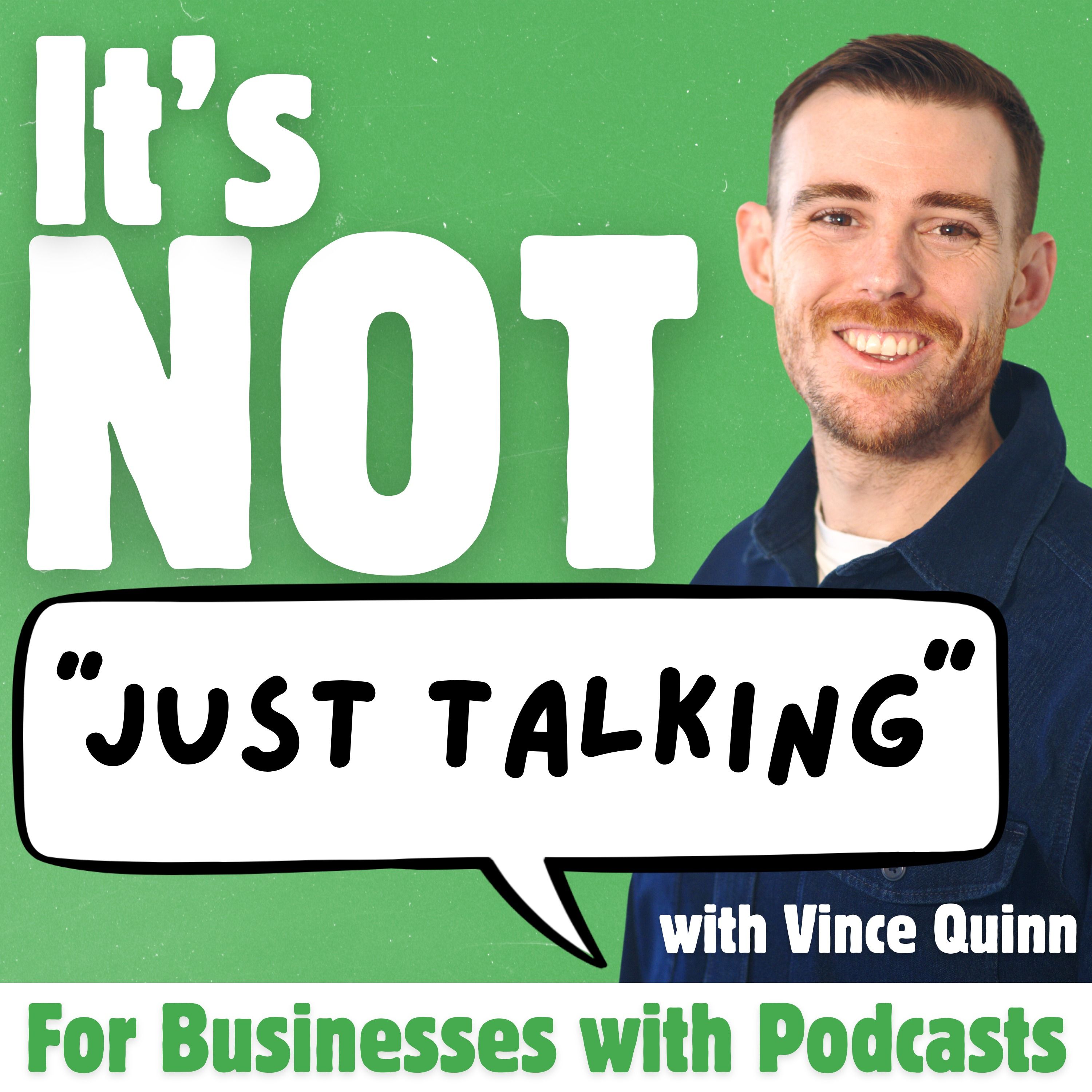
It's Not Just Talking with Vince Quinn
SBX Productions, Vince Quinn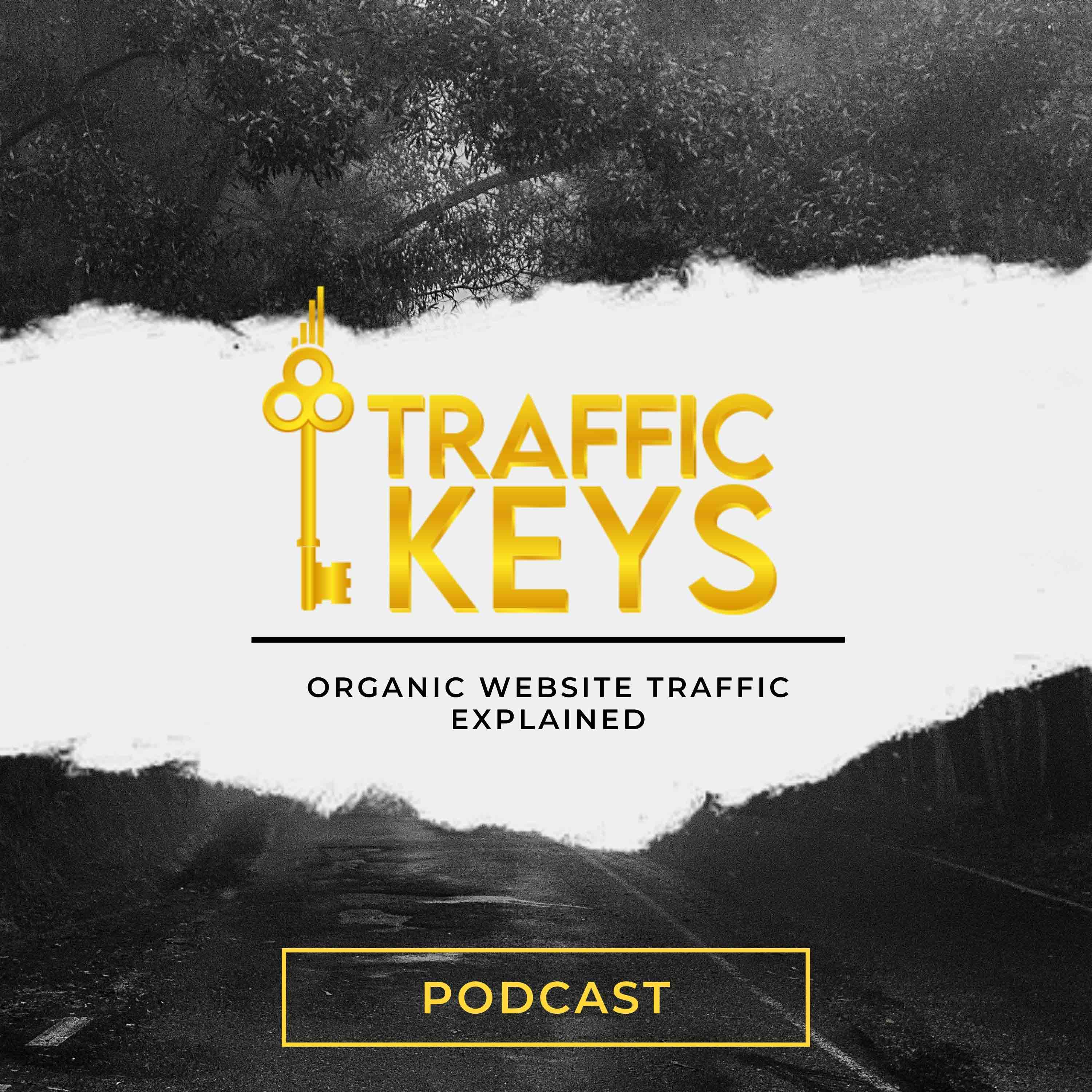
Traffic Keys Podcast
Atiba de Souza
I Have A Podcast by Vinnie Potestivo
Vinnie Potestivo
Entrepreneurs on Fire
John Lee Dumas of EOFire
Imperfect Marketing
Kendra Corman
Raise the Script with Nutrigenomics
Dr. Tamar Lawful, PharmD, APh, CNGS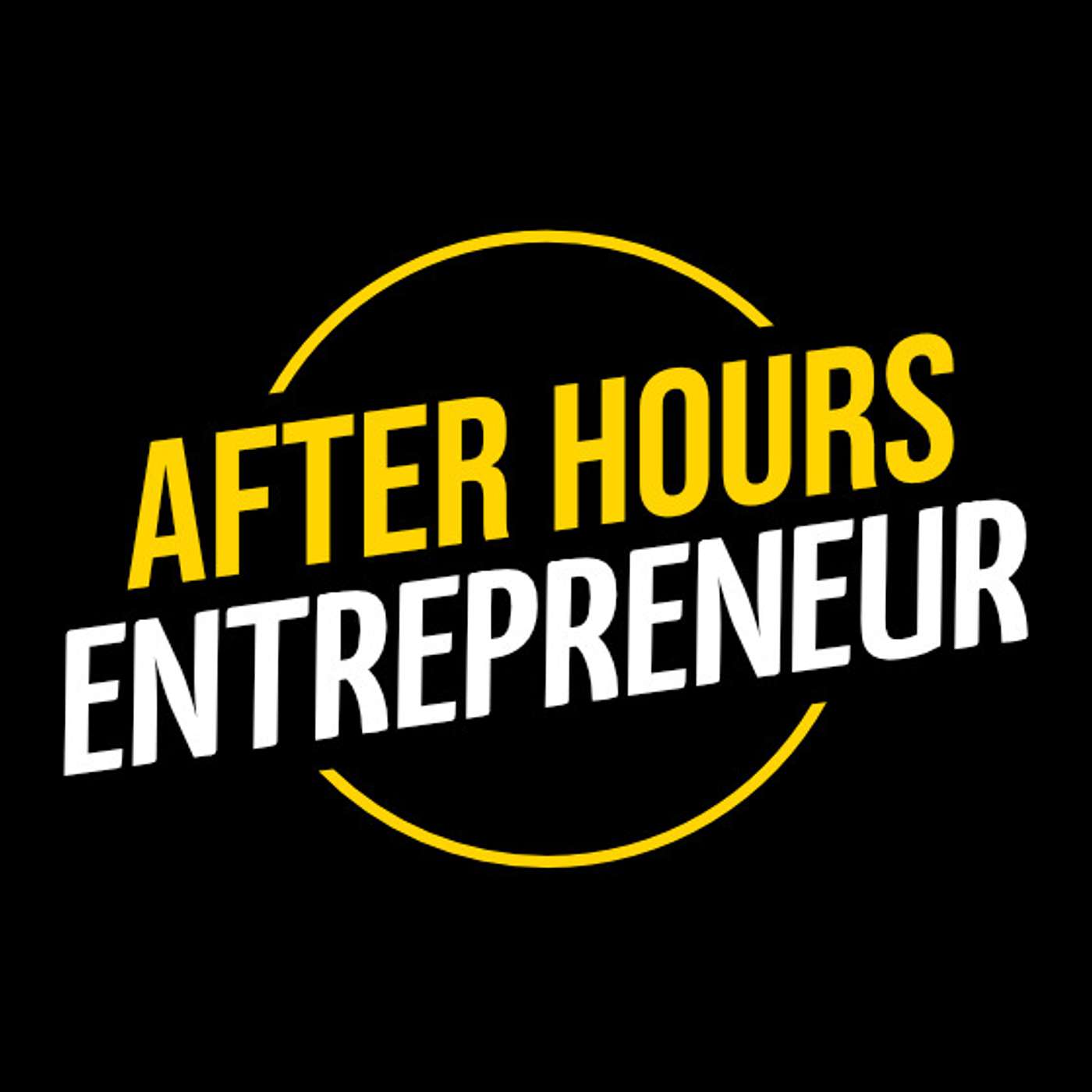
After Hours Entrepreneur with Mark Savant
Mark Savant
BETHEL
Dr. Oluwadara Alarape
Thoughts on Thought Leadership with Atiba
Atiba de Souza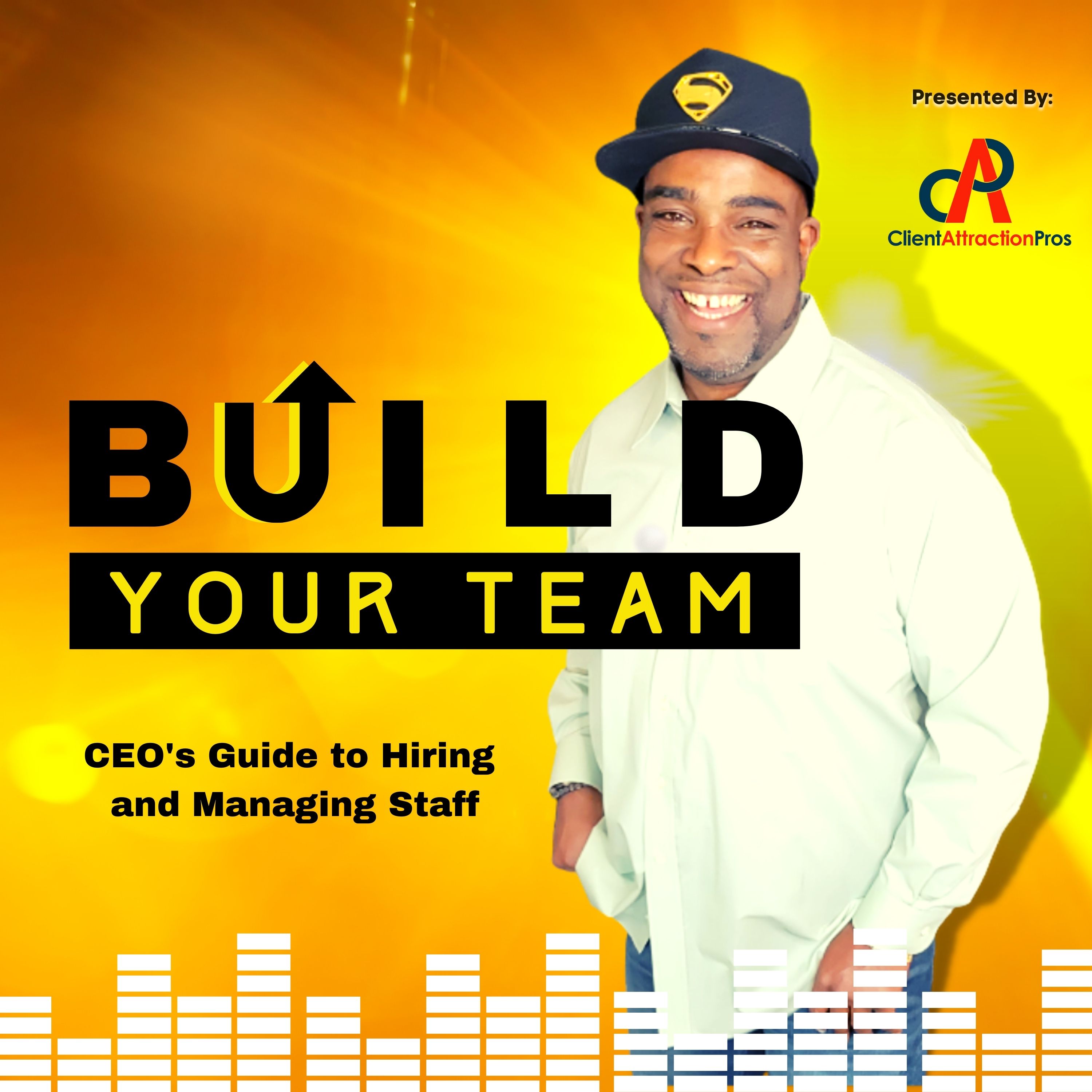
Build Your Team
Atiba de Souza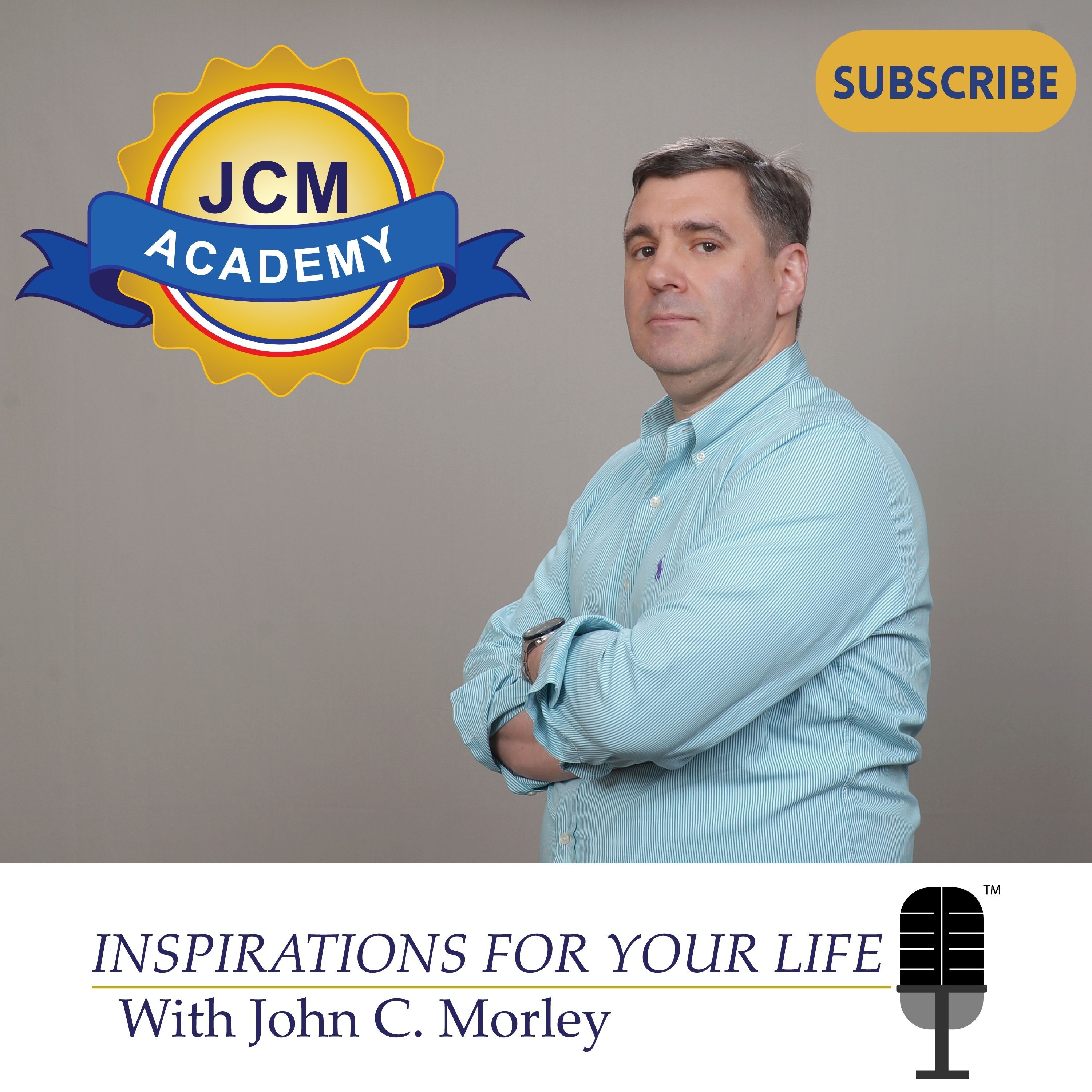
Inspirations for Your Life
John C. Morley, Serial Entreprener
Marketing in the Age of AI
Emanuel Rose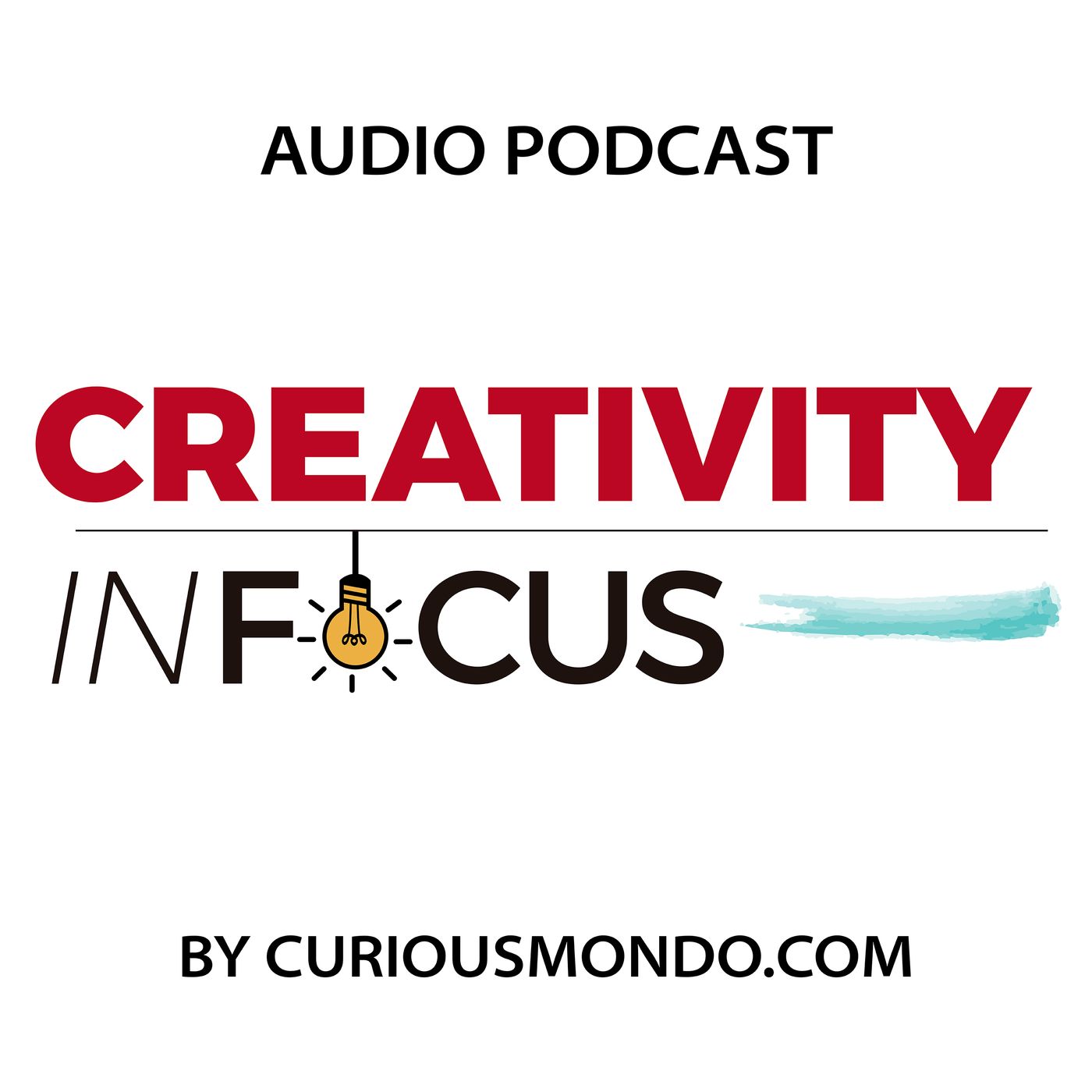
Creativity in Focus - Audio Only
Shahar Boyayan
Make Something Happen with Audrey Wiggins
Audrey Wiggins
The UnNoticed Entrepreneur
Jim James
Music 101
Daniel Lucas / G.Mick Smith
Food 101
Daniel Lucas/Alessandro Panattoni
Abstract Essay
Daniel Lucas /Sal Cosenza
#iesgaherrera28d28sonidos
daniel lucas
El podcast de Lucas Daniel Porra
Lucas Daniel PorraDaily Dose of Dave Podcast
Dave Valentine
InWork Podcast with Dave Valentine
Dave Valentine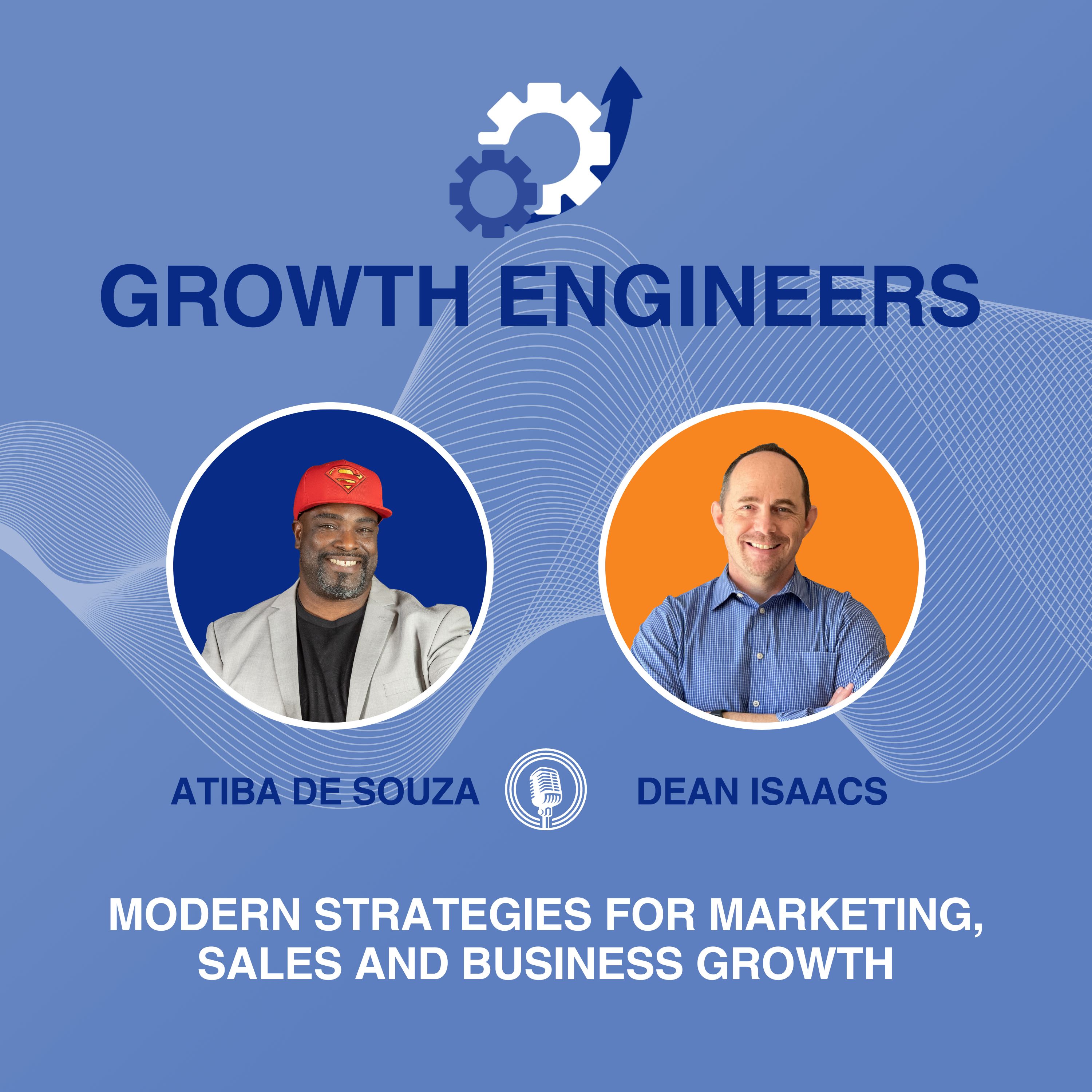
Growth Engineers
Atiba de Souza and Dean Issacs
Refuge Freedom Stories
Jonnie Taverner
St. Augustine of Hippo: Expositions of the Psalms
Mary McDonald
Podcasting for Financial Professionals
Virginia Elder
Best of Virginia Elder
Virginia Elder | Podcast Abundance
Gamify Business Tavern Tales
Paul Pape

